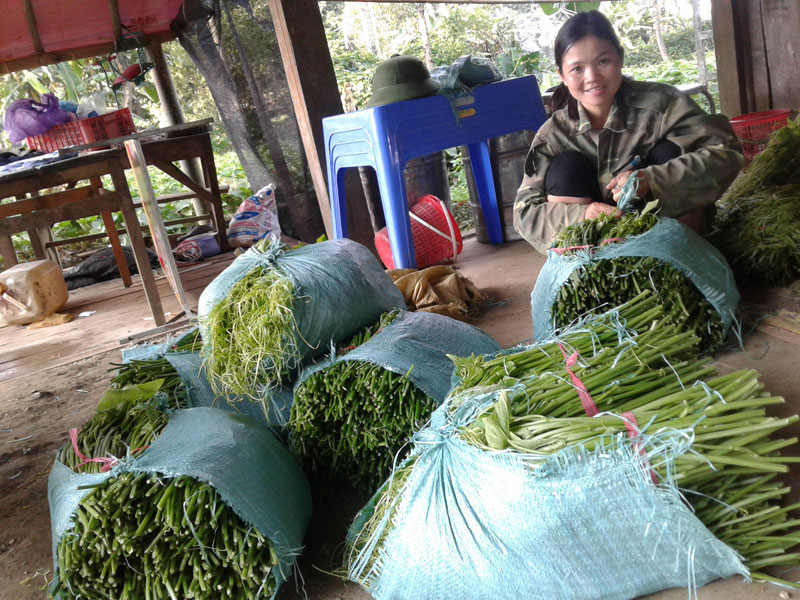



Dinh Thi Quyet prepares
chayote shoots to be sold at wholesales markets in
Located nearly
Thanks to these advantages, over the past time, the province’s Department of Agriculture and Rural Development and other organisations have carried out many projects supporting the development of organic farming of vegetables in the area. With the hope to switch to profitable crops, Quyet and other households have actively participated in these projects. Talking to us, Quyet said: "locals have planted forests, corns and other food crops on this land for generations. However, these crops produce low economic efficiency. So it is difficult for us to escape from poverty. After being trained, I began planting vegetables on nearly 5,000sq.m of land owned by my family. Participating in the project, we received assistance in the form of seeds, capital and more importantly, we gained access to advanced cultivation technologies from experts and different regions, so that we can learn from experience and determine our own ways. Among the vegetables planted here, chayote is the most suitable in terms of climate and cultivation conditions and customs of mountainous residents. Chayote is easy to plant with little care and prolonged harvest, so we have regular incomes”.
Quyet also visited wholesales markets in Hoa Binh city
and
Quyet said, "Along with vegetables planted on my family’s 5,000sq.m land, I buy vegetables of villagers. When they trust in me, they want to sell at stable volume and prices. When delivering vegetables for distributors, the price is sometimes low due to several objective reasons, but to maintain stable supply, I myself have to bear the loss, so that villagers feel secured to continue their plantation”.
Sharing her experience in planting organic vegetables, Quyet said: "unlike in other areas, in our place chayote shoots can be harvested all the year round. As the area is surrounded by rocky mountain, we do not have to water regularly and fertilise much. The plant also suits local soil and does not attract pests. Therefore, the organic plantation is pretty easy”.
When the Quyet Chien cooperative was established, Quyet was elected as its head. At that time, 30 households participated in the cooperative with the understanding that they can only gain a firm foothold on the market by planting clean and organic vegetables. At present, together with chayote, the Quyet Chien cooperative also received help to farm off-season turnip and cabbage./.